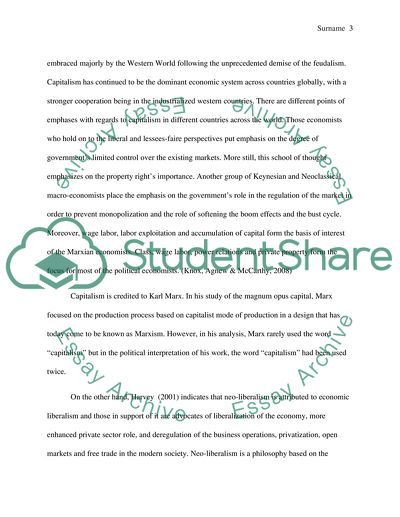Cite this document
(Space of Global Capitalism Research Paper Example | Topics and Well Written Essays - 4000 words, n.d.)
Space of Global Capitalism Research Paper Example | Topics and Well Written Essays - 4000 words. Retrieved from https://studentshare.org/philosophy/1821068-space-of-global-capitalism-neoliberalism-is-not-only-producing-a-new-social-order-but-its-own-new-geography-as-well-providing-reasons-and-examples-would-you-agree
Space of Global Capitalism Research Paper Example | Topics and Well Written Essays - 4000 words. Retrieved from https://studentshare.org/philosophy/1821068-space-of-global-capitalism-neoliberalism-is-not-only-producing-a-new-social-order-but-its-own-new-geography-as-well-providing-reasons-and-examples-would-you-agree
(Space of Global Capitalism Research Paper Example | Topics and Well Written Essays - 4000 Words)
Space of Global Capitalism Research Paper Example | Topics and Well Written Essays - 4000 Words. https://studentshare.org/philosophy/1821068-space-of-global-capitalism-neoliberalism-is-not-only-producing-a-new-social-order-but-its-own-new-geography-as-well-providing-reasons-and-examples-would-you-agree.
Space of Global Capitalism Research Paper Example | Topics and Well Written Essays - 4000 Words. https://studentshare.org/philosophy/1821068-space-of-global-capitalism-neoliberalism-is-not-only-producing-a-new-social-order-but-its-own-new-geography-as-well-providing-reasons-and-examples-would-you-agree.
“Space of Global Capitalism Research Paper Example | Topics and Well Written Essays - 4000 Words”, n.d. https://studentshare.org/philosophy/1821068-space-of-global-capitalism-neoliberalism-is-not-only-producing-a-new-social-order-but-its-own-new-geography-as-well-providing-reasons-and-examples-would-you-agree.


